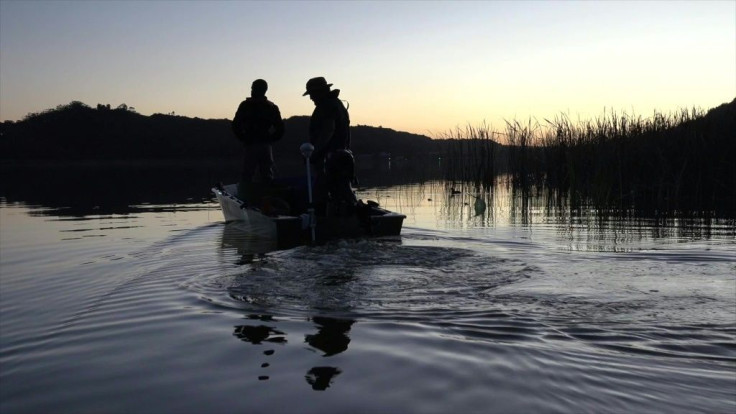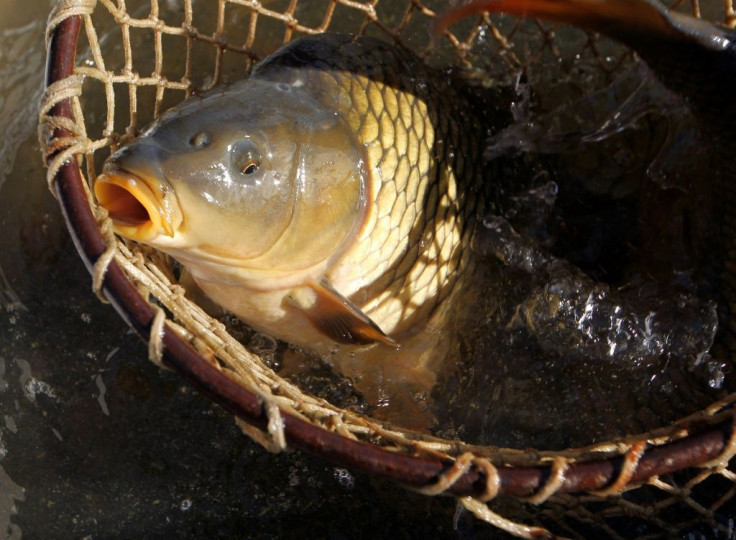Carpe Diem: Invasive Fish Feeds Hungry In South Africa's Lockdown
It is just before sunrise and volunteers are hauling nets full of gleaming, wriggling carp out of Groenvlei Lake.
Here, on the picturesque coast of South Africa, environmentalists are hard at work trying to eradicate an invasive alien species.
The fish, introduced into Groenvlei in the 1800s, has proliferated so much that the lake's ecosystem is at threat.

For nearly two years, the carp have been netted or hunted with a bow and processed into fertiliser. But not any more.
Today, the fish are destined for dinner tables in nearby Sedgefield, a town that depends hugely on tourism -- and that industry has vanished almost overnight because of the coronavirus pandemic.
With South Africa's lockdown now in its fifth month, fish from Groenvlei are helping feed around 250 people per day.

"It is a difficult time since COVID-19 started, we could not work. There is (no) money to buy food," said Erika Kurdom, speaking behind her mask after collecting her ration for the day.
"This fish helps us greatly," she said.
South Africa has the highest number of coronavirus infections on the continent, with a tally creeping towards half a million.
For freshwater anglers in western Europe, carp are a game fish which are typically put back into the water alive after being caught, so that they can fight again.
But in other cultures, in eastern Europe, the Middle East and Asia, carp are a well-known dish and are often farmed for food.
"The fish itself (is)... very good for human consumption," said Mario Ferreira, regional representative of charity Gift of the Givers, driving the fish distribution initiative.
"The locals actually love it."
© Copyright AFP 2024. All rights reserved.











